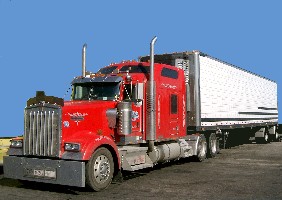Researchers at University of Edinburgh in the U.K. and colleagues in the Netherlands and Sweden have found that ultrafine particles from the burning of diesel fuel can increase the chances of blood clots forming in arteries, leading to a heart attack or stroke. Their findings appear in the current issue of the European Heart Journal.
The team exposed 16 healthy volunteers in a randomized double blind cross-over study to diluted diesel exhaust, pure carbon nanoparticulates, filtered diesel exhaust, or filtered air. The subjects then performed moderate exercise before the researchers tested the subjects’ blood pressure and other cardiovascular functions.
The levels of diesel exhaust in the study were calibrated to reflect heavy air pollution in a large city. Scientists studied the subjects’ reactions to the gases found in diesel fumes, such as carbon monoxide and nitrogen dioxide, and then compared those measures with reactions caused by the ultrafine chemical particles from exhausts.
Mark Miller of Edinburgh’s Centre for Cardiovascular Science says the results show both gases and particles can affect blood pressure, but “it is actually the miniscule chemical particles that are emitted by car exhausts that are really harmful.” Miller adds, “These particles produce highly reactive molecules called free radicals that can injure our blood vessels and lead to vascular disease.”
The micro- and nano-scale particles (1 millionth of a meter or less) can be filtered from diesel exhaust with particle traps that prevent their escape into the atmosphere. Some public diesel-powered buses in the U.S. are already using these filters.
Jeremy Pearson of the British Heart Foundation that funded the study says, “For now our advice remains the same: people with heart disease should avoid spending long periods outside in areas where traffic pollution is likely to be high, such as on or near busy roads.”
* * *


 RSS - Posts
RSS - Posts
You must be logged in to post a comment.